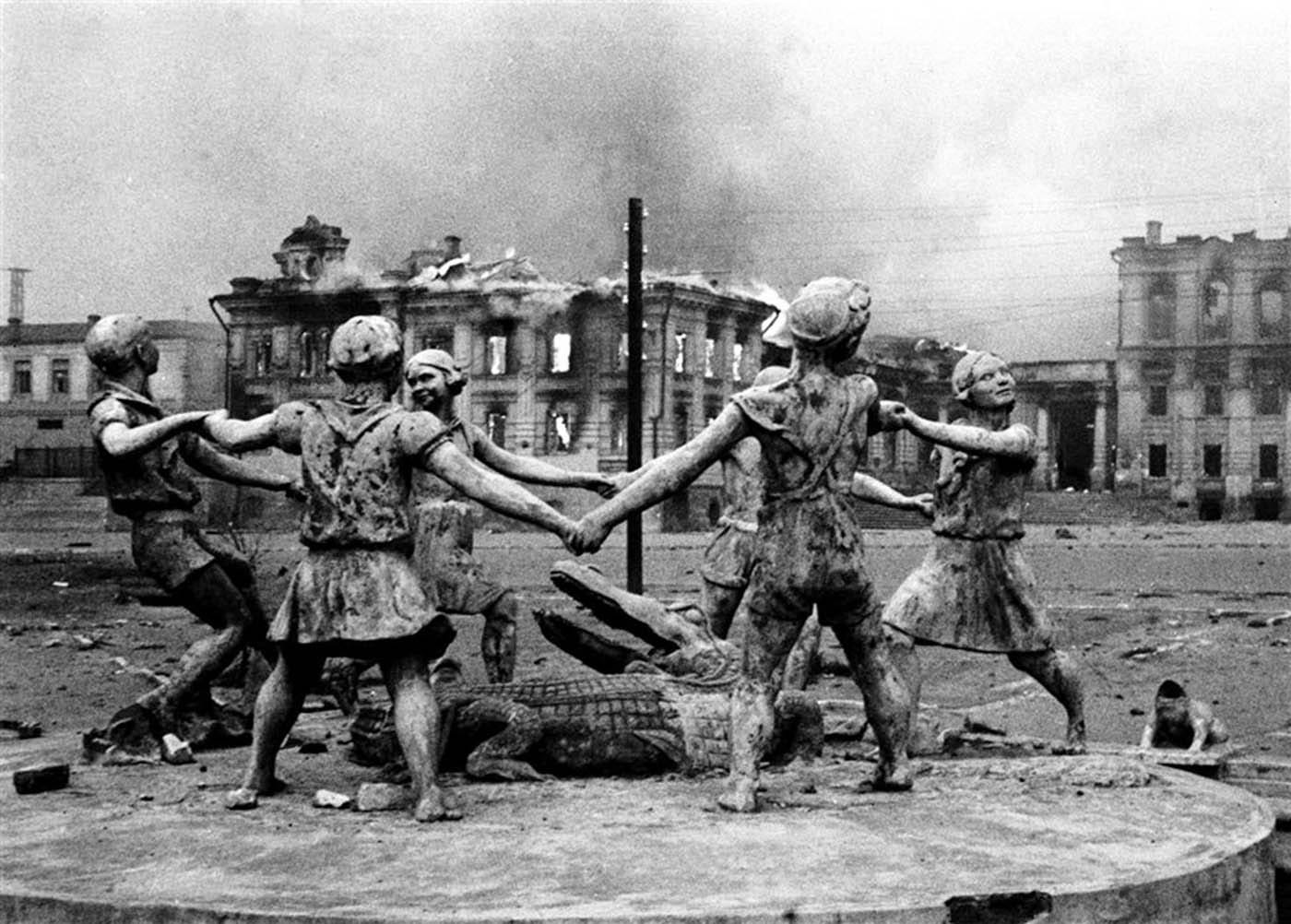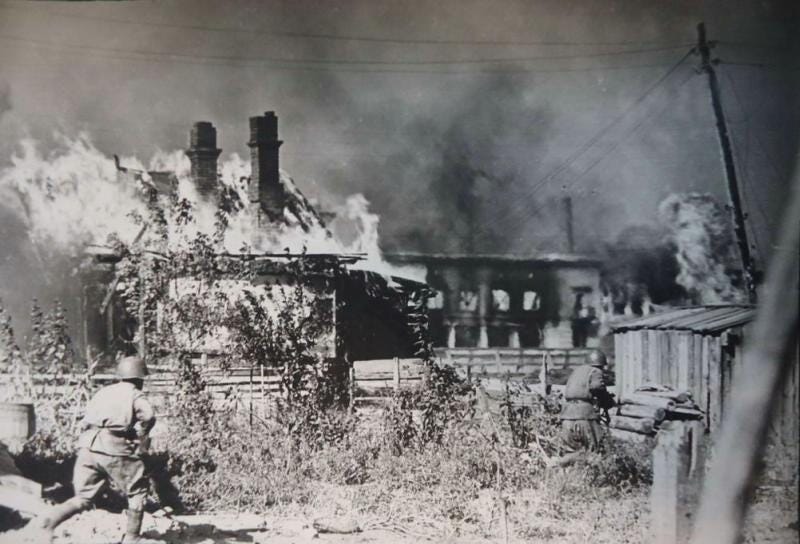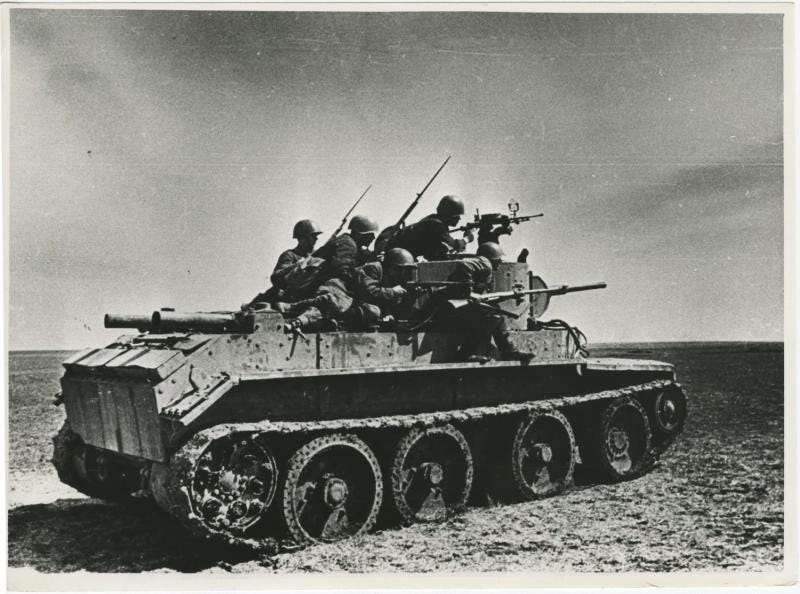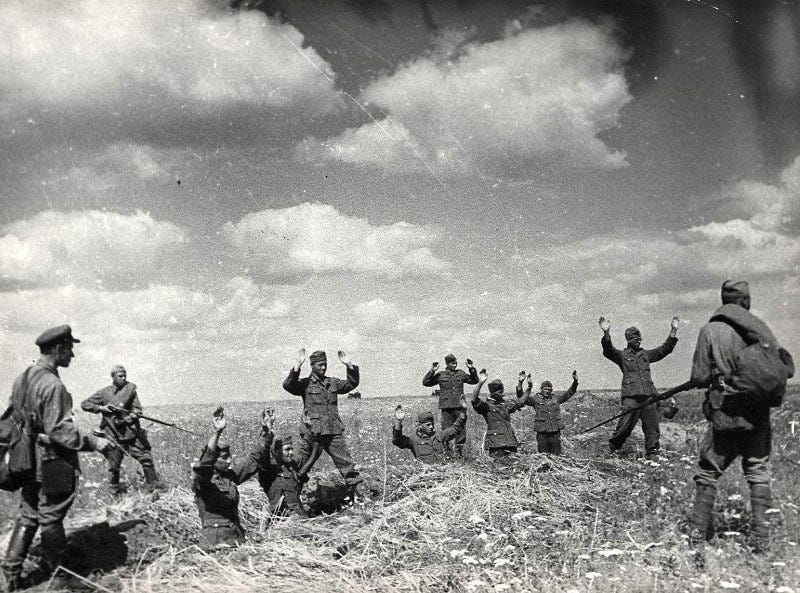Will Stalingrad hold ?
27th August 1942: As the Red Army falls back into Stalingrad the demoralising series of retreats since July leads to an air of defeatism
Soviet journalist Vassily Grossman was an acute observer of life on the Eastern Front, both on the front line and in the rear areas. His notes and articles from this time were to form the basis of his masterpiece novel ‘Life and Fate’, one of the great works of the 20th century.

Although the German bombers had reached Stalingrad, the German 6th Army approached cautiously as they fought off some reckless Red Army attacks into their rear columns.
At the end of August 1942 Grossman1 watched as Red Army units retreated into the city of Stalingrad on the banks of the Volga. It was a moment of great tension. If the Wehrmacht could reach this far - deep into the heart of Russia - was there any hope of continuing the war?
Those were hard and dreadful days . . . The armies were retreating. Mens faces were gloomy. Dust covered their clothes and weapons, dust fell on the barrels of guns, on the canvas covering the boxes full of headquarters documents, on the black shiny covers of staff typewriters, and on the suitcases, sacks and rifles piled chaotically on the carts. The dry, grey dust got into people’s nostrils and throats. It made one’s lips dry and cracked.
That was a terrible dust, the dust of retreat. It ate up the men’s faith, it extinguished the warmth of people’s hearts, it stood in a murky cloud in front of the eyes of gun crews. There were minutes when people forgot their duty, their strength and their weapons, and a murky feeling would come over them. German tanks were moving on the roads with a rumbling noise.
German dive-bombers were hanging over the Don crossings by day and by night. ‘Messers’ were whistling over the supply carts. Smoke, fire, dust, terrible heat. On those days, the faces of the marching soldiers were as pale as those of the wounded men lying on the shaking one-and-a-half- ton trucks.
On those days, men marching with their weapons felt like moaning and complaining, just like those who lay on the straw in villages, their bandages bloodstained, waiting for the ambulances to pick them up. The great nations great army was retreating.
The first units of the retreating army entered Stalingrad. Trucks with grey-faced wounded men, front vehicles with crumpled wings, with holes from bullets and shells, the staff Emkas with star-like cracks on the windscreens, vehicles with shreds of hay and tall weeds hanging from them, vehicles covered with dust and mud...
‘unwillingly, they made the city’s defence more difficult by silently indicating, with their fears and anxiety, that Stalingrad had to be surrendered.’
One has to be honest. On those anxiety-filled days, when the thunder of fighting could be heard in the suburbs of Stalingrad, when at night one could see rockets shot far away into the sky, and pale blue rays of searchlights roamed the sky, when the first trucks, disfigured by shrapnel, carrying the wounded and the belongings of retreating head quarters appeared in the streets of the city, when front-page articles announced the mortal danger for the country, fear found its way into a lot of hearts, and many eyes looked across the Volga.
It seemed to these people that they didn’t have to defend the Volga, that it was the Volga that had to defend them. These people were saying a lot about the evacuation of the city, about transport, about steamers going to Saratov and Astrakhan; it seemed to them that they cared for the city’s fate, while in fact, unwillingly, they made the city’s defence more difficult by silently indicating, with their fears and anxiety, that Stalingrad had to be surrendered.





